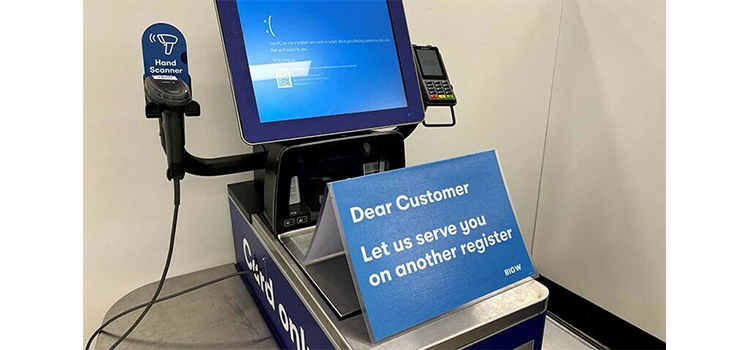A significant outage of Microsoft’s cloud computing services on Friday caused widespread disruptions across various sectors worldwide. The incident impacted flights, news broadcasting, and operations in financial institutions, demonstrating the critical dependence on cloud services.
Extent of the outage
The outage affected Microsoft Azure and Microsoft 365 services, with significant reports of disruptions from Australia, the US, the UK, and India. According to DownDetector, a real-time internet outage monitoring site, the US experienced 1,751 reports of issues, while Pakistan had a maximum of 25 Azure outages and 13 Microsoft 365 outages.
Microsoft announced that the issue began around 6 PM Eastern Time on Thursday (3 AM Pakistan Standard Time). A subset of customers in the Central US region faced problems with multiple Azure services. Additionally, the company investigated issues affecting various Microsoft 365 applications and services. Microsoft assured users that mitigation efforts were ongoing to address the residual impacts.
Sector-wide impacts
Airlines and airports
Major US airlines, including American Airlines, Delta Airlines, and United Airlines, grounded flights citing communication issues shortly after Microsoft resolved its cloud services outage. Although it remains unclear if the grounding was directly linked to the Microsoft outage, several low-cost carriers like Frontier Airlines, Allegiant, and SunCountry reported significant operational disruptions. Frontier alone cancelled 147 flights and delayed 212, while Allegiant and SunCountry experienced notable delays.
US Secretary of Transportation Pete Buttigieg stated that the department was monitoring the flight issues and would ensure airlines meet their responsibilities towards passengers.
Financial institutions and media
In Australia and New Zealand, banks, media outlets, and telecom companies experienced severe disruptions. The Commonwealth Bank of Australia reported issues with money transfers, while Qantas and Sydney Airport saw flight delays. Media companies, including the Australian Broadcasting Corporation (ABC) and Sky News Australia, faced significant broadcasting interruptions.
Corporate and government systems
The outage also affected corporate and government systems. In the US, IT security firm Crowdstrike acknowledged reports of crashes on Microsoft’s Windows operating system due to its Falcon sensor. Australian telecom giant Telstra and Victorian state police reported internal system disruptions. New Zealand’s parliamentary computer systems were also impacted.
Indian Airlines
In India, three major airlines — IndiGo, SpiceJet, and Akasa Air — reported extensive disruptions to their booking and check-in systems. IndiGo announced that their systems were impacted by the Microsoft outage, while SpiceJet reverted to manual processes. Akasa Air mentioned “infrastructure issues” affecting their services.
Global repercussions
The widespread nature of the outage highlights the global dependency on cloud computing services provided by Microsoft. The incident not only caused immediate operational disruptions but also raised concerns about the resilience and reliability of cloud-based infrastructure in critical sectors.
Microsoft continues to work on mitigating the impact of the outage and restoring full functionality to its services.









